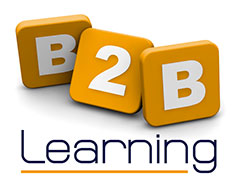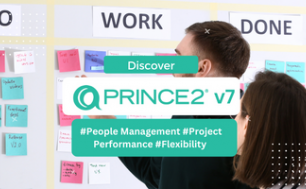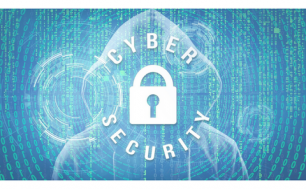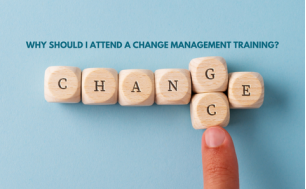Product successfully added to your shopping cart
ITIL® 4 Drive Stakeholder Value (DSV) 3 Days (21 Hours) / Exam voucher and Take2 option included
1 850,00 € tax excl.
Our 3-day “ITIL® 4 Specialist: Drive Stakeholder Value (DSV)” is one of the four courses towards the ITIL4 Managing Professional (MP) designation.
This course is ideal for anyone who wants to gain a firm grasp of the various types of interactions between a service provider and their customers, users, suppliers and partners.
The core concept behind Drive Stakeholder Value is to provide an understanding of how to convert demand into value through IT-enabled services. The course covers key topics like service level-agreement design, multi-supplier management, relationship management, customer and user experience design, customer journey mapping, and more. Individuals can expect to walk away with the tools required to drive user engagement and boost internal and external stakeholder satisfaction.
More info
Course & Learning Objectives
During our 3-day course, participants will:
- Become familiar with the concept of the customer journey and discover ways to design and improve customer journeys
- Learn how to describe customer needs considering the internal and external factors affecting these needs
- Understand how the supplier management practice can be applied to enable and contribute to supplier and partner relationships management
- Discover methods for designing digital service experiences based on value driven, data driven and user-centric service design
- Learn to align expectations and determine a shared view of the target service scope and quality between the service provider and the service consumer
- Understand key transition, onboarding and offboarding activities
- Know how to foster a service mindset: attitude, behaviour and culture
- Have knowledge of the methods to track and measure service value: outcome, risk, cost and resources
Course Content
The course is divided into various modules to explain the key concepts in a structured manner.
Module 1 – The customer journey – Introduction
- Mapping, designing, measuring and improving the Customer Journey
Module 2 - The customer journey – Step 1: Explore
- Understanding service consumers, service providers and targeting markets
Module 3 - The customer journey – Step 2: Engage
- Service relationship types
- Building service relationships
- Analyzing customer needs
- Managing suppliers and partners
Module 4 - The customer journey – Step 3: Offer
- Managing demand and opportunities
- Designing service offerings and user experience
- Selling and obtaining service offerings
Module 5 - The customer journey – Step 4: Agree
- Aligning expectations and agreeing services
- Agreeing and planning value co-creation
- Negotiating and agreeing a service
Module 6 - The customer journey – Step 5: Onboard
- ITIL management practices
- Planning onboarding
- Providing user engagement and delivery channels
- Enabling users for service
- Offboarding
Module 7 - The customer journey – Step 6: Co-Create
- Service mindset
- Ongoing service interactions
- Nurturing user communities
Module 8 - The customer journey – Step 7: Realize
- Measuring and tracking service value
- Value capturing and customer journey improvement
- Assessing and reporting value realization
- Evaluating value realization and improving customer journeys
With the help of ITIL® 4 concepts and terminology, activities, exercises, examples and the case study included in the course, you will acquire relevant knowledge to pass the ITIL® 4 Specialist: Drive Stakeholder Value certification exam.
Please note that participants need to foresee at least 1.5 hours study time every evening.
Who Should Attend?
Our ITIL® 4: Drive Stakeholder Value course is designed for individuals and organizations engaged in service relationships, including product and service provision, consumption and relationship management. These are the people and organizations that are either involved in organizing the customer journey or taking part in it.
Audience includes:
Relationship Managers; Customer/User Experience (CX/UX) Managers; Account Managers; Service Delivery Managers; Service Desk Managers; Enterprise Architects; Service and Solution Architects; Business Analysts; Product Owners and Digital Product Managers; Project & Portfolio Managers; Supplier Relationship Managers.
Pre-Requisites
To attend the ITIL® 4: Drive Stakeholder Value, the learner is expected to be familiar with ITIL 4
Foundation, where the fundamental service management concepts of ITIL 4 are introduced. Participants must hold the ITIL 4 Foundation certificate to take the ITIL4 DSV exam.
Participants will need to provide B2B Learning with a copy of their certificate upon registration to be admitted into this course. If you need to take your ITIL 4 Foundation exam, you can either attend our ITIL 4 Foundation classroom course or eLearning module, or book your exam only online if you prefer self-study.
Accredited training for the ITIL Managing Professional modules is mandatory to enable full understanding of the core material.
Course Documentation
Participants will receive an accredited set of course materials in digital format (eBook) including a pre- and post- reading guide and mock exam. Participants may print the material one time and can use the files under the B2B Learning terms of use.
The price includes the lunches, training materials with a digital copy of the official ITIL 4 DSV Manual and exam voucher.
About the certification
- Multiple-choice format (1 mark per question)
- Pass grade: 70%
- 40 questions
- Closed book
- Duration: 90 minutes + 25% extra time for non-native English speakers
During the training you will receive an exam voucher for an online proctored exam (with Take2 option). You will do your exam after the training at a date/hour of your choice. Please be aware that you will have to install an 'exam shield' on you PC before taking the exam. More information during the training.
Questions / Answers
Be the first to ask a question about ITIL® 4 Drive Stakeholder Value (DSV)
Reviews
You must log in to give a review
Data sheet
| Category | IT Service Management & Architecture |
| Certification | ITIL |
| Level | Advanced |
| Duration | 3-Day course |
| Exam | Exam included |
| Lunch | Coffee breaks and lunches included |












